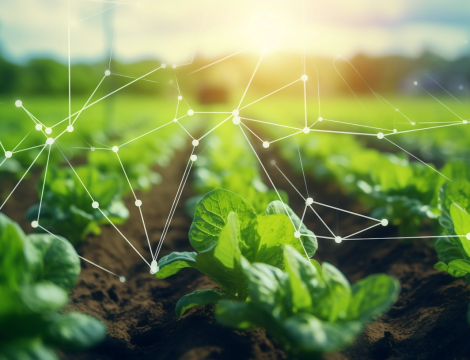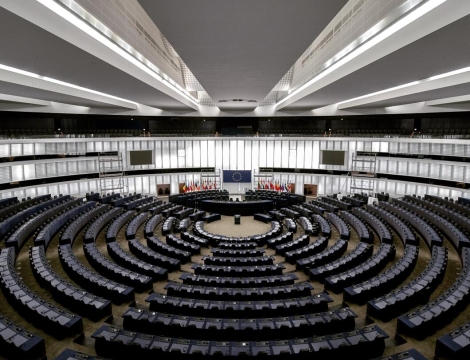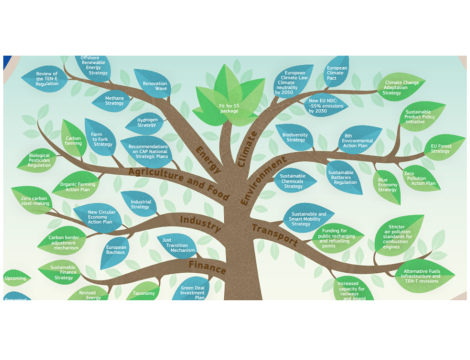Net-Zero Emissions: Driving Change in Food & Agri
This article is part of a series of short LinkedIn blogs by the Food & Agri team of Anders Invest. Here, we outline our perspectives on key themes that are relevant to the Food & Agri sector and explain how we try to make an impact with our portfolio companies and investment strategies.
Considering reducing your carb intake? While some individuals vouch for its effectiveness, others view it as a passing trend in nutrition. In contrast, reducing carbon emissions is a shared objective that unites the global food system. Unless we minimize CO2, methane, and other greenhouse gas (GHG) emissions, sea levels will rise, and the likelihood of catastrophic weather events will increase, impacting the food and agricultural industry.This article will examine the carbon market and will focus on Origin & Amsterdam, a portfolio company of ours, known for its sustainable sourcing and trading.
Food plays a crucial role in combating climate change, encompassing factors such as dietary choices, agricultural practices, and the supply chain that connects producers to consumers. Achieving the 1.5-degree target necessitates a reduction of global greenhouse gas emissions, with a goal of reaching a 50 per cent reduction from current levels by 2030 and attaining carbon neutrality by 2050. The framework to achieve these global targets in the food and agricultural industry is outlined in initiatives like the Green Deal. Consequently, the number of companies committed to reaching net-zero emissions has surged globally, with those taking action on such corporate targets quadrupling since 2020—from approximately 1,000 in 2020 to more than 4,000 in January 2023. In this transition towards a net-zero economy, the role of carbon offsetting will be crucial.
The carbon market can take two different but not mutually exclusive paths: a compliance carbon market and a voluntary carbon market. In the European Union, the compliance carbon market operates under the EU Emissions Trading System (ETS), a cap-and-trade system designed to limit greenhouse gas emissions across the continent. Under the EU ETS, the European Commission sets an overall emissions cap, which represents the maximum allowable emissions within the EU's jurisdiction, covering key sectors such as power generation, manufacturing, and aviation. This cap is progressively reduced over time to align with the EU's climate targets. Companies receive or purchase emission allowances within this cap, and if they emit less than their allowance, they have the right to sell their surplus permits to others. The price of permits has experienced significant growth. In 2018, a permit was valued at €7.50, while by March 2023, it peaked at over €100. Therefore, this can be a powerful tool and mechanism to incentivize companies to innovate and reduce their emissions.
On the other hand, a voluntary carbon market uses carbon credits: a document representing the equivalent of one metric ton of carbon dioxide and other greenhouse gases, either prevented from being emitted into the atmosphere (emissions avoidance/reduction) or extracted from the atmosphere through a carbon-reduction project. This market could lead to emission avoidance/reduction in the short term by investing in green energy, energy-saving technologies, and natural resources. Secondly, it can lead to emission removal (negative emissions). Achieving net-zero emissions by 2050 will require at least five gigatons of negative emissions annually.
The voluntary and compliance carbon markets face challenges related to measurement, standardized rules and regulation, leakage, and uncertainty. However, there are promising opportunities to make an impact within the food and agricultural industry. Future developments may enable the financial compensation of sustainable practices, reforestation efforts, and carbon sequestration processes. Companies that lead the way with innovative and environmentally friendly approaches are more likely to benefit from these opportunities. Consequently, investing in companies that actively remove and reduce emissions aligns with our investment philosophy and strategy, making both financial and moral sense.
Michel Beekwilder of Origin & Amsterdam, a company from our portfolio specializing in sustainable sourcing and B2B trading of organic products like wheat, spelt, sunflower seeds, soybeans, nuts and vegetable oils, explains what role the carbon market will play in his pursuit of a more sustainable enterprise: "Every organization, regardless of size, will soon need to adhere to forthcoming regulations on environmental impact. We've established benchmarks and performed an internal materiality analysis to remain proactive and not merely reactive. Given our rapid expansion and dependence on the emissions from our logistics partners, a mere commitment to reducing CO2 isn't adequate. Instead, we prioritize partnerships with entities that utilize renewable and hydrogen-based fuels. Our goal is a 30% reduction in average emissions from transport of our products over the next five years. Any gaps in achieving this will be addressed through carbon offset purchases."
"Aligning with our mission to create a positive impact, this approach also presents a strong business case. By 2024, major corporations will be mandated to detail their impact via CSRD, tracing back through their value chain to illustrate the nature of the products they acquire and sell. Consequently, these corporations will likely collaborate with sourcing firms with comprehensive impact reports and lead the way in sustainable policy. Moreover, by investing a premium, they can endorse their items with a carbon-neutral label, enhancing their product's value. We expect that customers who strive for transparency and sustainability will want to work with us. This shift is already happening, and making the right strategic decisions now will enable Origin & Amsterdam to be future-proof and acquire plenty of new business."




